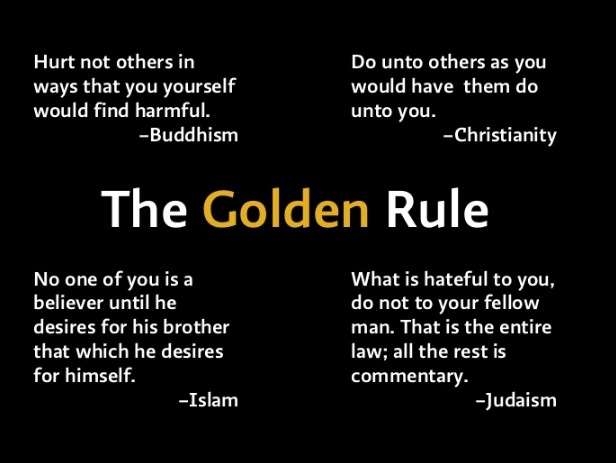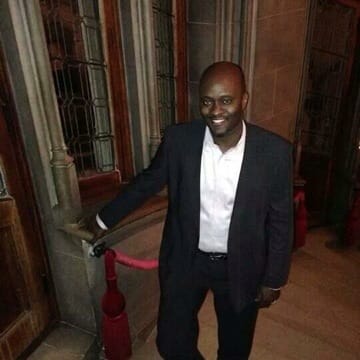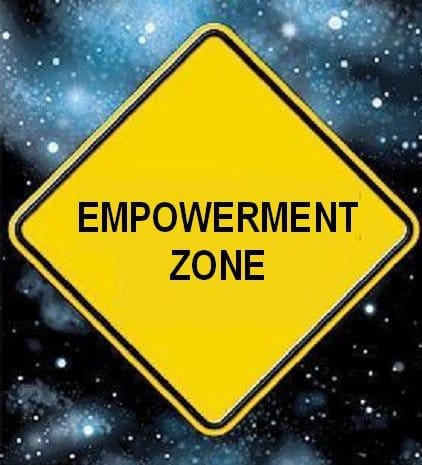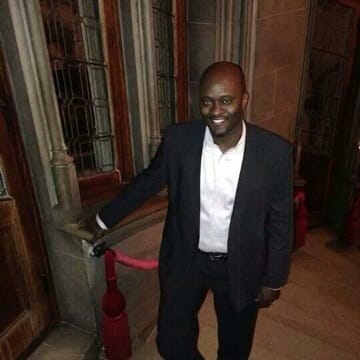
by Adam L Stanley | Dec 31, 2015 | Leadership, Life, Quotes and Inspiration, Relationships
I Don’t DO New Year’s Resolutions
My friends and colleagues that know me well know that I don’t believe in New Year’s Resolutions. Sure, I want to be healthier, work out more, make more phone calls, blah, blah, and blah. But why tell everyone that each January when life changes too frequently for those kind of commitments. Last year, I drafted a list of five simple things people could resolve to do instead of their normal lists. And I stand to that. I would love to hear whether you tried any of them. (See here if you did not read that post.)
This year, instead of a resolution, I decided to document something much more important.
My Personal Ten Commandments
I got this idea from a book of ideas I received from a professional organization I have just joined. And I think it is brilliant. Your life will change. Your job will change. Your circle of friends will evolve. But your core values and principles should be consistent. And while you may compromise on compensation, title, which restaurant to dine at or movie to see, there should be certain things about which you refuse to compromise. Here are my personal 10 Commandments. I would love to see yours!

I. I will put life before money
Money is helpful in life but it is not life. I enjoy the fruits of my career, but do not be deceived as I would rather have nothing than sellout my core values. I will not devote my life to the pursuit of money, popularity, prestige, or social status. I will not envy someone else’s worldly goods, personal or professional reputation, achievements or any temporary success.
 II. I will be my authentic self.
II. I will be my authentic self.
Regardless of how successful someone might seem, trying to emulate that person will not make me equally successful. Yes, that jerk has made it to a high point in his career. But I am not a jerk. I do not want to be a jerk. And if being a jerk is required to get to that next step, I will accept my ceiling happily.
III. I will never use religion to justify intolerance
I am unashamedly and apologetically a Christian. My beliefs influence how I act and how I make decisions. However, my beliefs are personal and should never be used for hate or harm. I expect the same from others but sadly this has not been the case, especially of late.
IV. I will never lose sight of the big picture.
Details are important, but too often relationships are hurt, jobs killed, and wars lost because people lost sight of what really mattered. I will endeavor to always see the forest AND the trees.
V. In all that I do, I will strive for high quality
I must continually look to improve on old models and practices, working to dedicate myself to being the best that I can be, everyday, in whatever activity or cause to which I find myself attached.
VI. I will love, honor, and cherish those that nurtured me
The purpose of life is to gather the wisdom of the ages, add your individuality and change the world. Try to make it a better or at least a more interesting place. H Wexler
My mom and dad, my sister and my best friends. My mentors Ken P, Louis R, Mike E, Jack W, Adam S, Dan K, and on an on. You mean so much to me and have taught me so much. I learned from you and for that I thank you. I hope to provide similar nurturing to future leaders.
VII. No one is better than me and I am no better than anyone else

Do not treat the lives of other people as less valuable than your own. Ever. No matter how right you may feel. Start with the premise of equality and then try to find the perspective of the other side. I am saddened by the hatred in the world today largely caused by people forgetting the one rule that exists in all major world religions. Treat others as you want to be treated. Do not be prejudiced. I will always try to get to know the individual and not judge him or her by a race, religion, or other characteristic.
VIII. I will allow individuals to drive their destiny and take responsibility for their decisions
I blogged on this recently with a focus on senior leaders. But the principle applies to everyone. If you allow people to make as many decisions about their own lives and circles, they will be better equipped than you. And, they can learn from their successes and failures.
IX. I will be honest and fair
A white lie is a lie. Misleading people is like telling a white lie. Hiding key elements of a complete story is misleading people. I will strive to be as honest and true as possible, managing truth that could hurt people effectively but never hiding the truth to avoid difficult conversations. I will not cheat or exploit people. I will not always be polite or politically correct, but I will be respectful.
X. I will laugh at every opportunity, and with as many people as I can.
Laughter gives us distance. It allows us to step back from an event, deal with it and then move on. –Bob Newhart
So, that’s my list. What’s yours? Have a wonderful, relaxing as you want it to be, fun as you’d like it to be, New Year. And thank you for your continued connection.
Be well. Lead On.
Adam
Related Posts:
Who Am I?
Expectations of Leaders at all Levels
Khalil Gibran on Leadership
Lessons from Henry V
Also check out:
“To Be Happier, Write Your Own Set of Personal Commandments” by @gretchenrubin on @LinkedIn https://www.linkedin.com/pulse/20131129204900-6526187-to-be-happier-write-your-own-set-of-personal-commandments

Adam L. Stanley Connections Blog
Technology. Leadership. Food. Life.
AdamLStanley.com
Follow me on Twitter | Connect with me on Linked In | “Like†me on Facebook

by Adam L Stanley | Dec 14, 2015 | Leadership, Relationships, Teamwork
You are the leaders of this organization and hold the keys to success.

At the heart of any mission is talent. Whether building the new rocketship to take us to Mars, raising money for a charity, designing a new service online, or working to be the best manufacturer of the latest series of widgets, talent matters. Which is why it is part of so many of my blogs and why I want to quickly share some thoughts for leaders. This one is targeted to leaders that are at the director/senior manager level, typically CEO – 3 layers. In my org, this would mean people that report to my direct reports. Beyond that, I think they could really be considered for any leaders of teams.
The crux of the message is this: You are the leaders of this organization and hold the keys to success. When given a role as a leader, you must immediately transform yourself from an individual contributor that must manage up, to a leader that must manage up, down, and sideways. And, from time to time, you will need to transform again as peers and managers change significantly, or you go to a new company. In many ways, the global leadership team (my directs) need to serve in the capacity of “Chairman and CEO” of the company we are building. They need to be the ones setting the strategy, selling the vision, and building the dream. But if the next layer down is not willing and ready to be the “President and COO” of our company, the dream can never be achieved.
People may think that I want the directs of my directs to be “empowered”, “trusted”, and held “accountable” because that is the right thing to do for team engagement. Bullocks. Yes, its good for the teams to be treated with respect in this way. However, it is not purely altruistic that I form teams in this manner. The fact of the matter is, our mission DEPENDS on this. We simply cannot be successful if leaders at all levels do not step up to the challenge they have been given to drive change independently. The directs of my directs, I call them the XLT, run our business. That means we expect a lot of them and, likewise, they should expect more from us. So, I wanted to share some thoughts on leadership and my expectations. I am sharing these with my team as well as with my friends here in the online world.
What we expect from you as a manager
- Ownership of transitions Remember back when you were in grade school? Don’t worry, I don’t remember much either. However, I do remember that each new year was a new adventure pretty much directed by my teachers. They showed me how my last year’s learning tied to the new year. They led exercises to introduce me to my new classmates, courses, and books. But in the corporate world, on our mission, we do not always have that luxury. And, frankly, the higher up you go, the less assistance you will get with transitions. Things move faster and are not always as structured as grade school. That means you are in some cases you will be leaving behind responsibilities to take on new ones before fully completing your prior responsibilities. As leaders, you are expected to manage transitions, ensuring that your responsibilities are not only well in hand but all key stakeholders are informed of the change. This is a critical mission success factor.
- Setting expectations I was the News Editor of my college newspaper, Student Life, at Washington University. At the beginning of each editorial cycle, I worked out a set schedule of articles our reporters were expected to write, with dates they were due and no leeway for being late. For a newspaper that came out twice a week, there was only so much flexibility. But the MAJORITY of corporate decisions are not actually this tightly time constrained. So, leaders must help manage expectations. You know your workload, skillsets and available tools better than anyone else. And you are a leader. If you get a request to drive something, you must set expectations. When should I hear from you and how often will you provide updates? Where does this fall within your priority list? Are you not the right person for the job? If you do not set expectations appropriately, the best possible outcome is that you unwittingly meet expectations set by someone else. The worst case is that the expectations that were set were completely unrealistic and you will fail.
- Communication to your teams and peers – Every day, I think about what I want to wear to the office. That is perhaps the only decision I make each day that does not require input from others. Even that one is influenced by others based on conversations I have had about a particular type of shoes (“Adam is the only c-suite exec here that has a pair of Blue shoes”) or my choice of casual or formal business attire (“still wearing a tie, eh, Adam?”). But in a fast-changing, active decision environment, communication is critical. Especially during times of change and transition, our colleagues need to hear from us much more. Decisions are being made that impact lives, impact our clients, impact the markets and how our competitors react to us. We can get into a trap of having so many meetings and conference calls that we forget the basics. Pick up the phone. Reach out to someone for coffee. Write a personal thank you note.
- Driving independently In order for any organization to deliver effectively the massive change programs underway in a competitive environment, we must hold our leaders accountable for driving independently. We must empower them to make decisions without funneling every action through hierarchies. We must trust them to get done their component of the work. And we must hold them accountable for delivering and punish/reward them based on agreed expectations. I blogged on this a while back (See Blog and a poster with these three words in on most of my team’s desks. We must expect XLT leaders to deliver on change programs with less direct intervention. Clear objectives set up front, guidance and support when needed, and recognition/credit when complete. The mission depends on this, as every hour spent by me working on a component of the mission is an hour I cannot sell the dream, build the vision.
What you should expect from your manager
It is easy for senior level executives to set expectations on their subordinate leaders. However, we must recognize that relationships go two ways. If I truly want my leaders to act a certain way, managing transitions, communicating to their teams, and driving independently, my leaders must be able to expect certain things from me.
- Support for this process, including patience and understanding as they build plans, outside assistance if justified, and help identifying the right person to whom you should transition if needed.
- Leading by example when it comes to communication and team engagement.
- Unless you lead them to conclude otherwise, your manager should trust your judgment and be reasonably accepting of the expectations you set.
What are some expectations you have of your leaders and how have you seen them help your mission? Is your manager providing effective space for you to grow as a leader?
Be well. Lead On.
Adam
Related Posts:
Investing in talent for the long-term
Expectations of Leaders at all Levels
Khalil Gibran on Leadership
Lessons from Henry V

Adam Stanley
Adam L. Stanley Connections Blog
Technology. Leadership. Food. Life.
AdamLStanley.com
Follow me on Twitter | Connect with me on Linked In | Join me on Instagram
by Adam L Stanley | Nov 16, 2015 | Leadership, Technology

“So you think you can dance?”
Recently, I had a conversation with a former colleague who is about to embark on a new journey in his second role as a CIO. I had a separate conversation with someone who is contemplating making the rise towards the role. I realize that overtime I’ve had lots and lots of conversations and I’ve also met some stellar leaders and some not so stellar. I am still a work in progress and enjoying the journey of everyday trying to become a better leader, better business executive, and a better CIO. I wanted to post a quick list on what I think are some of the critical skills for a CIO.
Five core skills every CIO must continually improve
Of course, there are dozens of items I could include. However, here are the top five in my opinion:
1) RELATIONSHIPS – You have to be able to deal with and be accepted by people in various groups. Expect that in a typical week, you might have a meeting with a peer about a failing project, with vendors to negotiate a contact, with your CFO to review budget, to an external sales call with a client, to a strategic conversation with your CEO, to handling a sensitive issue with an employee. Each relationship is different and requires an ability to adjust your style while remaining authentic.
(See my prior posts on relationships. )
2) FINANCIAL ACUMEN – Master your budget. Know where you’re on target and where you have options to better manage. Don’t depend solely on the Finance function. They may provide you the numbers and the insight, but you get fired or rewarded for results. The temptation of mini technology liters is to spend a lot of time with their infrastructure team and their developers but then to forsake time with the finance leadership. That is a fatal mistake.
3) BUSINESS ACUMEN – you must know the business almost as much as the business development and sales teams. The risk of not working hard to know the businss is being left out of important calls. Or worse, you get invited to “the table”, but only acknowkedged when discussing specific technology issues. If not careful, you will get relegated to corporate stuff and controls.
4) LEADERSHIP – As anyone in the field will know, IT can be thankless. You rarely get calls when things go well, but let the ish hit the fan and your voicemail box is full. Your team needs inspiration and encouragement without pandering or coddling. Tough love that holds them accountable but allows for fast failure and supported recovery. You must have your Henry V moments on St Crispins Day, but also your Harry Potter vs Voldemort one on one battles where you are leading by example. Firm but fair leadership when you are also under pressure can be incredibly tough.
5) HUMILITY – no matter how hard you try, from time to time you will find yourself doing stuff that is “beneath you”. If I had a dollar everytime the entire room looked at me when a PC wasn’t able to connect to the projector, or the CEOs iPhone wasn’t working, I could at least buy a nice dinner or so package. Like it or not, if you have technology in your title, Wharton MBA or otherwise, you will at some point be asked to fix the meeting presentation system in a meeting with the Executive Committee. And you will have to graciously ignore the fact that Joe D. Salesman simply didn’t know how to hit page down to advance his slides.
Being a CIO can be one of the most rewarding, challenging, and exciting opportunities in your corporate career. You will meet amazing people, network amongst technology visionaries as well as business leaders, and drive significant transformation in your company. It can also be highly frustrating and boy will you be tired. A lot. However, continually working on these particular skills will make you and your company more succesful.
What are some expectations you have of your CIO (or, if you are the CIO, of yourself) and does he or she live up to those expectations? What skills would you add to my list?
Be well. Lead On.
Adam
Related Posts:
Who Am I?
Expectations of Leaders at all Levels
Khalil Gibran on Leadership
Lessons from Henry V

Adam Stanley
Adam L. Stanley Connections Blog
Technology. Leadership. Food. Life.
AdamLStanley.com
Follow me on Twitter | Connect with me on Linked In | “Like” me on Facebook

by Adam L Stanley | Oct 30, 2014 | Leadership, Relationships, Teamwork
Inspiration and courage must come from every level of your business if you are to be successful.
Most of us have read dozens of articles about amazing leaders and superstar management teams that make all the difference. And I do completely agree that success without good leadership at the top is near impossible. But a recipe for personal failure is to expect all wisdom and guidance to come from on high. I continue to hear people ask for vision and inspiration from the top. And, yes, I agree this is critical. But it is important we remember just how inspirational we can be to each other. A group of smart people in a room thinking positively and acting on such positive thinking can go so far.
I often talk about leaders at all levels and encourage you to be the leader that drives the change you want to be. There are people out there that are looking to YOU to make them feel purpose, to make them want to stick it out and fight as hard as necessary to get things done. Yes, they will enjoy watching CEO videos, seeing values presentations, and the like, and they will get vision and inspiration from there. But YOU have the power to influence daily and I urge you to do so.
Be well. Lead on.
Adam
Adam L. Stanley
Connections Blog
Technology. Leadership. Food. Life.
Follow me on Twitter | Connect with me on Linked In | Comment below.

by Adam L Stanley | Mar 23, 2014 | Leadership, Quotes and Inspiration, Relationships, Teamwork
 Building relationships based on respect
Building relationships based on respect
People who have worked with me before have heard me on this particular soapbox quite a bit and for those I will suggest maybe they don’t need to read this particular blog. There will be nothing new here. That said, it is perhaps because I continue to hear stories from great talent I have met around the world that are working with people that still do not get it.
It is for these people that I write this blog.
Executives get busy and they get stressed. Markets start to squeeze and pressure mounts, causing many to revert to the old command and control techniques they used in prior decades. When the kitchen heats up, they forget the basics. I believe some need to be reminded of a basic principle that should be obvious to all: Organizations are successful when there is a strong relationship of respect among leaders at all levels.
Now, before I go further, let me be absolutely clear: effective leadership requires adapting your style from time to time to appropriately handle a given challenge. There are times for diplomacy, inclusion, and democracy (e.g., complex problem), and there are times for command and control (e.g., during an urgent crisis). However, underlying your leadership style, and regardless of the type of problem, the relationship of respect must prevail.
A relationship of respect requires three key elements: trust, accountability, and empowerment.
Every team that has worked with me over the past decade will have heard me speak explicitly of the three simple things that I feel are the most important elements of effective, increasingly global, teams. I sincerely hope that those that worked with me before that will see in this blog some of the elements of our team work that worked best even if we never put it to words.
Trust. Accountability. Empowerment.
You will notice that none of them involve bureaucracy, centralization, or added layers without added value! It also does not require being “nice”.

Trust: We must build and maintain levels of trust across borders and business units, recognizing the unique strengths and backgrounds of each individual. In companies that are complex, especially with multiple business units and geographies, the absence of trust can cause money, time, and valuable resources to be wasted on duplicated efforts.

Accountability: We must be a respectful organization and a collegiate one, but all of us must be held accountable as well. Accountability goes hand in hand with trust. When we all understand each other’s respective areas of responsibility and accountability, we create a culture of trust, and we can focus on the services and solutions we deliver and the goals we want to achieve without distraction.
It is important to note that accountability is as much about what is accomplished as it is about how it is accomplished. If you’re an a-hole, regardless of your delivery skills, people will find it hard to trust you and the relationship of respect will be difficult.
 Empowerment: People must be allowed to make decisions and drive change without being micromanaged and without needing to get multiple approvals; they must be allowed to be leaders. Just as importantly, we must enable those whom we empower. Power without training is not a formula for success. Empowerment is about giving a person the ability to manage something tangible that adds value, but also about working with that individual to help him or her succeed.
Empowerment: People must be allowed to make decisions and drive change without being micromanaged and without needing to get multiple approvals; they must be allowed to be leaders. Just as importantly, we must enable those whom we empower. Power without training is not a formula for success. Empowerment is about giving a person the ability to manage something tangible that adds value, but also about working with that individual to help him or her succeed.
Leadership is not easy, and successful teams are elusive to many people. But, with some basic focus on respect and these key principles, you will at minimum have the right foundation for success.
Be Well. Lead On.
Adam

Adam Stanley
Adam L. Stanley Connections Blog
Technology. Leadership. Food. Life.
AdamLStanley.com
Follow me on Twitter | Connect with me on Linked In | “Like†me on Facebook


 II. I will be my authentic self.
II. I will be my authentic self. 


 II. I will be my authentic self.
II. I will be my authentic self. 







 Building relationships based on respect
Building relationships based on respect

 Empowerment: People must be allowed to make decisions and drive change without being micromanaged and without needing to get multiple approvals; they must be allowed to be leaders. Just as importantly, we must enable those whom we empower. Power without training is not a formula for success. Empowerment is about giving a person the ability to manage something tangible that adds value, but also about working with that individual to help him or her succeed.
Empowerment: People must be allowed to make decisions and drive change without being micromanaged and without needing to get multiple approvals; they must be allowed to be leaders. Just as importantly, we must enable those whom we empower. Power without training is not a formula for success. Empowerment is about giving a person the ability to manage something tangible that adds value, but also about working with that individual to help him or her succeed.